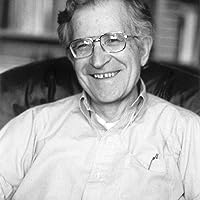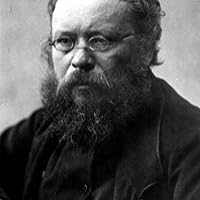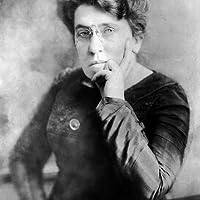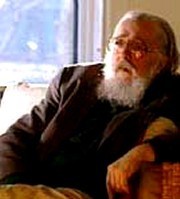Anarchism Quotes
Quotes tagged as "anarchism"
Showing 1-30 of 559

“You cannot buy the revolution. You cannot make the revolution. You can only be the revolution. It is in your spirit, or it is nowhere.”
― The Dispossessed: An Ambiguous Utopia
― The Dispossessed: An Ambiguous Utopia

“That is what I have always understood to be the essence of anarchism: the conviction that the burden of proof has to be placed on authority, and that it should be dismantled if that burden cannot be met.”
―
―

“Our masters have not heard the people's voice for generations and it is much, much louder than they care to remember.”
― V for Vendetta
― V for Vendetta

“To be GOVERNED is to be watched, inspected, spied upon, directed, law-driven, numbered, regulated, enrolled, indoctrinated, preached at, controlled, checked, estimated, valued, censured, commanded, by creatures who have neither the right nor the wisdom nor the virtue to do so. To be GOVERNED is to be at every operation, at every transaction noted, registered, counted, taxed, stamped, measured, numbered, assessed, licensed, authorized, admonished, prevented, forbidden, reformed, corrected, punished. It is, under pretext of public utility, and in the name of the general interest, to be placed under contribution, drilled, fleeced, exploited, monopolized, extorted from, squeezed, hoaxed, robbed; then, at the slightest resistance, the first word of complaint, to be repressed, fined, vilified, harassed, hunted down, abused, clubbed, disarmed, bound, choked, imprisoned, judged, condemned, shot, deported, sacrificed, sold, betrayed; and to crown all, mocked, ridiculed, derided, outraged, dishonored. That is government; that is its justice; that is its morality.”
― The General Idea of the Revolution in the Nineteenth Century
― The General Idea of the Revolution in the Nineteenth Century

“Your pretty empire took so long to build, now, with a snap of history's fingers, down it goes.”
― V for Vendetta
― V for Vendetta

“The individual cannot bargain with the State. The State recognizes no coinage but power: and it issues the coins itself.”
― The Dispossessed: An Ambiguous Utopia
― The Dispossessed: An Ambiguous Utopia

“Authority, when first detecting chaos at its heels, will entertain the vilest schemes to save its orderly facade.”
― V for Vendetta
― V for Vendetta

“Anarchism is founded on the observation that since few men are wise enough to rule themselves, even fewer are wise enough to rule others.”
―
―

“Anarchists did not try to carry out genocide against the Armenians in Turkey; they did not deliberately starve millions of Ukrainians; they did not create a system of death camps to kill Jews, gypsies, and Slavs in Europe; they did not fire-bomb scores of large German and Japanese cities and drop nuclear bombs on two of them; they did not carry out a ‘Great Leap Forward’ that killed scores of millions of Chinese; they did not attempt to kill everybody with any appreciable education in Cambodia; they did not launch one aggressive war after another; they did not implement trade sanctions that killed perhaps 500,000 Iraqi children.
In debates between anarchists and statists, the burden of proof clearly should rest on those who place their trust in the state. Anarchy’s mayhem is wholly conjectural; the state’s mayhem is undeniably, factually horrendous.”
―
In debates between anarchists and statists, the burden of proof clearly should rest on those who place their trust in the state. Anarchy’s mayhem is wholly conjectural; the state’s mayhem is undeniably, factually horrendous.”
―

“Anarchism is not a romantic fable but the hardheaded realization, based on five thousand years of experience, that we cannot entrust the management of our lives to kings, priests, politicians, generals, and county commissioners.”
―
―

“Nothing is yours. It is to use. It is to share. If you will not share it, you cannot use it.”
― The Dispossessed: An Ambiguous Utopia
― The Dispossessed: An Ambiguous Utopia

“If you took the most ardent revolutionary, vested him in absolute power, within a year he would be worse than the Tsar himself.”
―
―

“But what about human nature? Can it be changed? And if not, will it endure under Anarchism?
Poor human nature, what horrible crimes have been committed in thy name! Every fool, from king to policeman, from the flatheaded parson to the visionless dabbler in science, presumes to speak authoritatively of human nature. The greater the mental charlatan, the more definite his insistence on the wickedness and weaknesses of human nature. Yet, how can any one speak of it today, with every soul in a prison, with every heart fettered, wounded, and maimed?
John Burroughs has stated that experimental study of animals in captivity is absolutely useless. Their character, their habits, their appetites undergo a complete transformation when torn from their soil in field and forest. With human nature caged in a narrow space, whipped daily into submission, how can we speak of its potentialities?
Freedom, expansion, opportunity, and, above all, peace and repose, alone can teach us the real dominant factors of human nature and all its wonderful possibilities.
Anarchism, then, really stands for the liberation of the human mind from the dominion of religion; the liberation of the human body from the dominion of property; liberation from the shackles and restraint of government. Anarchism stands for a social order based on the free grouping of individuals for the purpose of producing real social wealth; an order that will guarantee to every human being free access to the earth and full enjoyment of the necessities of life, according to individual desires, tastes, and inclinations.
This is not a wild fancy or an aberration of the mind. It is the conclusion arrived at by hosts of intellectual men and women the world over; a conclusion resulting from the close and studious observation of the tendencies of modern society: individual liberty and economic equality, the twin forces for the birth of what is fine and true in man.”
― Anarchism and Other Essays
Poor human nature, what horrible crimes have been committed in thy name! Every fool, from king to policeman, from the flatheaded parson to the visionless dabbler in science, presumes to speak authoritatively of human nature. The greater the mental charlatan, the more definite his insistence on the wickedness and weaknesses of human nature. Yet, how can any one speak of it today, with every soul in a prison, with every heart fettered, wounded, and maimed?
John Burroughs has stated that experimental study of animals in captivity is absolutely useless. Their character, their habits, their appetites undergo a complete transformation when torn from their soil in field and forest. With human nature caged in a narrow space, whipped daily into submission, how can we speak of its potentialities?
Freedom, expansion, opportunity, and, above all, peace and repose, alone can teach us the real dominant factors of human nature and all its wonderful possibilities.
Anarchism, then, really stands for the liberation of the human mind from the dominion of religion; the liberation of the human body from the dominion of property; liberation from the shackles and restraint of government. Anarchism stands for a social order based on the free grouping of individuals for the purpose of producing real social wealth; an order that will guarantee to every human being free access to the earth and full enjoyment of the necessities of life, according to individual desires, tastes, and inclinations.
This is not a wild fancy or an aberration of the mind. It is the conclusion arrived at by hosts of intellectual men and women the world over; a conclusion resulting from the close and studious observation of the tendencies of modern society: individual liberty and economic equality, the twin forces for the birth of what is fine and true in man.”
― Anarchism and Other Essays

“If this is the price to be paid for an idea, then let us pay. There is no need of being troubled about it, afraid, or ashamed. This is the time to boldly say, “Yes, I believe in the displacement of this system of injustice by a just one; I believe in the end of starvation, exposure, and the crimes caused by them; I believe in the human soul regnant over all laws which man has made or will make; I believe there is no peace now, and there will never be peace, so long as one rules over another; I believe in the total disintegration and dissolution of the principle and practice of authority; I am an Anarchist, and if for this you condemn me, I stand ready to receive your condemnation.”
― Exquisite Rebel: The Essays of Voltairine de Cleyre — Anarchist, Feminist, Genius
― Exquisite Rebel: The Essays of Voltairine de Cleyre — Anarchist, Feminist, Genius

“Provided we can escape from the museums we carry around inside us, provided we can stop selling ourselves tickets to the galleries in our own skulls, we can begin to contemplate an art which re-creates the goal of the sorcerer: changing the structure of reality by the manipulation of living symbols ... Art tells gorgeous lies that come true.”
― TAZ: The Temporary Autonomous Zone
― TAZ: The Temporary Autonomous Zone

“I love men too — not merely individuals, but every one. But I love them with the consciousness of egoism; I love them because love makes me happy, I love because loving is natural to me, because it pleases me. I know no “commandment of love.” I have a fellow-feeling with every feeling being, and their torment torments, their refreshment refreshes me too; I can kill them, not torture them.”
― The Ego and Its Own
― The Ego and Its Own

“A revolution on a world scale will take a very long time. But it is also possible to recognize that it is already starting to happen. The easiest way to get our minds around it is to stop thinking about revolution as a thing — “the” revolution, the great cataclysmic break—and instead ask “what is revolutionary action?” We could then
suggest: revolutionary action is any collective action which rejects, and therefore confronts, some form of power or domination and in doing so, reconstitutes social relations—even within the collectivity—in that light. Revolutionary action does not necessarily have to aim to topple governments. Attempts to create autonomous communities in the face of power (using Castoriadis’ definition
here: ones that constitute themselves, collectively make their own rules or principles of operation, and continually reexamine them), would, for
instance, be almost by definition revolutionary acts. And history shows us that the continual accumulation
of such acts can change (almost) everything.”
― Fragments of an Anarchist Anthropology
suggest: revolutionary action is any collective action which rejects, and therefore confronts, some form of power or domination and in doing so, reconstitutes social relations—even within the collectivity—in that light. Revolutionary action does not necessarily have to aim to topple governments. Attempts to create autonomous communities in the face of power (using Castoriadis’ definition
here: ones that constitute themselves, collectively make their own rules or principles of operation, and continually reexamine them), would, for
instance, be almost by definition revolutionary acts. And history shows us that the continual accumulation
of such acts can change (almost) everything.”
― Fragments of an Anarchist Anthropology

“Anarchism is the revolutionary idea that no one is more qualified than you are to decide what your life will be.”
― Days of War, Nights of Love: Crimethink For Beginners
― Days of War, Nights of Love: Crimethink For Beginners

“Normally, when you challenge the conventional wisdom—that the current economic and political system is the only possible one—the first reaction you are likely to get is a demand for a detailed architectural blueprint of how an alternative system would work, down to the nature of its financial instruments, energy supplies, and policies of sewer maintenance. Next, you are likely to be asked for a detailed program of how this system will be brought into existence. Historically, this is ridiculous. When has social change ever happened according to someone’s blueprint? It’s not as if a small circle of visionaries in Renaissance Florence conceived of something they called “capitalism,” figured out the details of how the stock exchange and factories would someday work, and then put in place a program to bring their visions into reality. In fact, the idea is so absurd we might well ask ourselves how it ever occurred to us to imagine this is how change happens to begin.”
―
―
“This is what it means to be an adventurer in our day: to give up creature comforts of the mind, to realize the possibilities of imagination. Because everything around us says no you cannot do this, you cannot live without that, nothing is useful unless it's in service to money, to gain, to stability. The adventurer gives in to tides of chaos, trusts the world to support her - and in doing so turns her back on the fear and obedience she has been taught. She rejects the indoctrination of impossibility.”
―
―

“One of the problems with all of this is that not all narratives are equal. Imagine, to take a silly example, that someone told you story after story extolling the virtues of eating dog shit. You've been told these stories since you were a child. You believe them. You eat dog shit hotdogs, dog shit ice cream, General Tso's dog shit. Sooner or later, if you are exposed to some other foods, you might figure out that dog shit really doesn't taste good. Or if you cling too tightly to these stories (or if your enculturation is so strong that dog shit actually does taste good to you), the diet might make you sick or kill you. To make this example a little less silly, substitute the word pesticides for dog shit. Or, for that matter, substitute Big Mac, Whopper, or Coca Cola.”
― Endgame, Vol. 1: The Problem of Civilization
― Endgame, Vol. 1: The Problem of Civilization
“We have been expropriated from our own language by television, from our songs by reality TV contests, from our flesh by mass pornography, from our city by the police and from our friends by wage-labor.”
― The Coming Insurrection
― The Coming Insurrection

“The theory of exodus proposes that the most effective way of opposing capitalism and the liberal state is not through direct confrontation but by means of what Paolo Virno has called “engaged withdrawal,”mass defection by those wishing to create new forms of community. One need only glance at the historical record to confirm that most successful forms of popular resistance have taken precisely this form. They have not involved challenging power head on (this usually leads to being slaughtered, or if not, turning into some—often even uglier—variant of the
very thing one first challenged) but from one or another strategy of slipping away from its grasp, from flight, desertion, the founding of new communities.”
― Fragments of an Anarchist Anthropology
very thing one first challenged) but from one or another strategy of slipping away from its grasp, from flight, desertion, the founding of new communities.”
― Fragments of an Anarchist Anthropology

“Anarchism has but one infallible, unchangeable motto, "Freedom." Freedom to discover any truth, freedom to develop, to live naturally and fully." — Lucy Parsons”
― Lucy Parsons: Freedom, Equality & Solidarity - Writings & Speeches, 1878-1937
― Lucy Parsons: Freedom, Equality & Solidarity - Writings & Speeches, 1878-1937
All Quotes
|
My Quotes
|
Add A Quote
Browse By Tag
- Love Quotes 99k
- Life Quotes 78k
- Inspirational Quotes 74.5k
- Humor Quotes 43.5k
- Philosophy Quotes 30.5k
- Inspirational Quotes Quotes 28k
- God Quotes 26.5k
- Truth Quotes 24k
- Wisdom Quotes 24k
- Romance Quotes 24k
- Poetry Quotes 22.5k
- Life Lessons Quotes 21.5k
- Death Quotes 20.5k
- Quotes Quotes 19.5k
- Happiness Quotes 19k
- Hope Quotes 18k
- Faith Quotes 18k
- Inspiration Quotes 17k
- Spirituality Quotes 15.5k
- Religion Quotes 15k
- Motivational Quotes 15k
- Relationships Quotes 15k
- Life Quotes Quotes 15k
- Writing Quotes 15k
- Love Quotes Quotes 14.5k
- Success Quotes 13.5k
- Motivation Quotes 13k
- Time Quotes 12.5k
- Science Quotes 12k
- Motivational Quotes Quotes 11.5k



